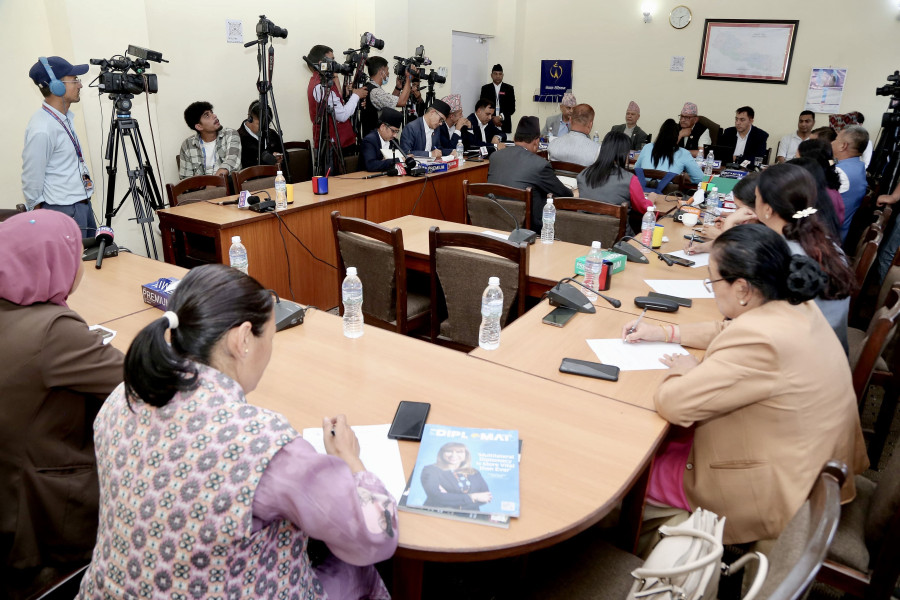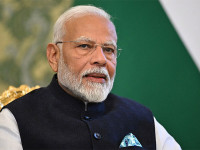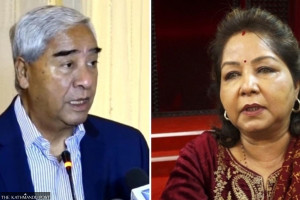National
School education bill’s endorsement drags on
Lawmakers engage in a verbal clash as meeting supposed to endorse it has been deferred till Thursday ‘one last time’.
Post Report
The Education, Health and Information Technology Committee of the House of Representatives failed to endorse the School Education Bill on Sunday as the government and ruling parties sought more time for discussion with the dissenting teachers.
Ammar Bahadur Thapa, chair of the committee, agreed to give five more days for the talks—a last time. This is the third time the endorsement was deferred after the government and the ruling parties sought additional time.
Thapa had informed the lawmakers that Sunday’s meeting would endorse the long-awaited bill. However, as the meeting commenced, Nepali Congress Chief Whip Shyam Ghimire proposed to put the bill on hold and allow some days for discussion with the Nepal Teachers’ Federation. Minister for Education, Science and Technology Raghuji Pant backed the proposal.
Opposition lawmakers, however, objected to the proposal, questioning who commands the committee—its chairperson or others. “The government and the chief whip [Ghimire] want to halt the meeting yet again? This is not the place where your [Ghimire’s] whip applies. Try it in your own party,” said Rekha Sharma, a CPN (Maoist Centre) lawmaker.
“Is this how a meeting is supposed to run? Is the chairman in control of the committee or not?”
Maoist Centre lawmaker Devendra Paudel, who also is a former minister, objected too, accusing the minister of trying to disrupt the lawmaking process.
“On whose orders are you acting? Are you trying to sabotage the law?” Paudel questioned Minister Pant.
The verbal fight between the ruling and opposition lawmakers lasted a while. Ghimire, claiming that the discussion with the federation had yielded positive results, argued that it was wrong for Sharma to make derogatory remarks criticising his proposal. He even left the meeting following the heated debate.
Intervening in the verbal war, Thapa said while Ghimire had the right to make his points, he was not happy with yet another postponement of the meeting. He deferred it until Thursday for the “last time”. The postponement means further delay in the endorsement of the bill, which was supposed to be passed on June 29.
Ghimire and CPN-UML chief whip Mahesh Bartaula in March had agreed in writing to June 29 as a deadline to get the bill endorsed from the lower house. With the deadline missed, the federation had issued a week-long ultimatum for the bill’s passage.
At Sunday's meeting, Pant and Ghimire claimed that the federation was ready to accept 60 percent of temporary teachers to be made permanent through internal competition while 40 percent would be hired through open competition. The federation had been demanding a 75:25 ratio. While most of the teachers’ demands have been incorporated in the bill, contention persists in the conditions for promotion.
The subcommittee led by UML lawmaker Chhabilal Bishwakarma had agreed that third-class teachers would be eligible for periodic promotion after 10 years of service, and second-class teachers after 12 years. The sub-committee had also agreed that only those who have scored 90 marks in the evaluation would be eligible for the promotion.
The federation has been pressured to remove the scoring requirement.
Some of the ruling party lawmakers also railed against the meeting’s deferral.
UML lawmaker and former education minister Bidya Bhattarai asked the government to take a stand on genuine matters.
Similarly,UML lawmaker Sarita Bhusal expressed frustration, saying that she was beginning to feel embarrassed to call herself a member of the Education Committee, and voiced her eagerness to see the bill passed.
“Fifty out of the total 126 meetings the committee has held till date have dwelt on the education bill. It’s disappointing that even after such long discussions, we’ve been unable to bring the education bill forward,” she said. The School Education Bill is one of the crucial laws needed for full implementation of federalism.




 17.62°C Kathmandu
17.62°C Kathmandu











